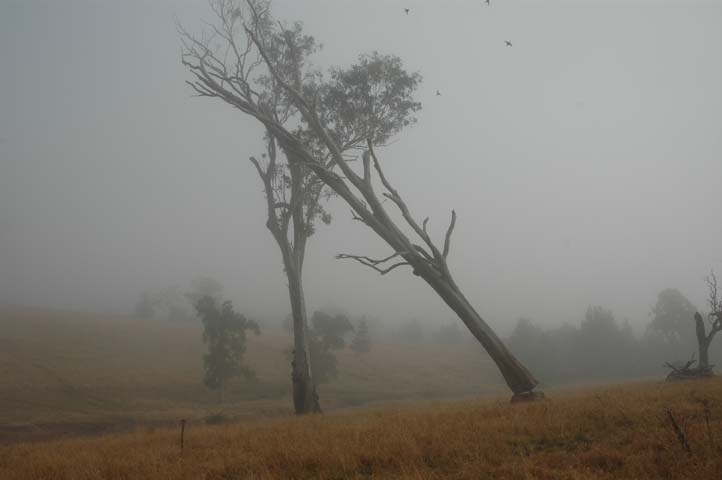The sound of one tree falling
I was having an email conversation with a good friend (and a couple others, including my brother) on the need, or lack of it, for historical accuracy in movies based on actual events. My friend’s position was that art can do anything it likes, as long as it conveys eternal and absolute human values. I’ve been reading Heidegger’s later lectures over the past year—I’m going to offer much more of my thoughts on those in the near future, I hope—where the idea of “values,” comes under repeated assault, in interesting ways. Yet, as penetrating and surprisingly accessible as Heidegger is in these essays, I tend to agree with my friend, not Heidegger, that in the moral realm, certain things are unassailable and unchanging. (Heidegger’s interest was never ethics, which is why he’s compelling, but more on that later.) Yet, those eternal “values” or “truths” my friend advocates are like Kafka’s castle, partly visible from down here in the village, but its hard to find a permanent home in them–and often difficult to connect that realm with the complexity of human obligations down here on the street.
My friend’s position is that movies need to embody moral truth in order to be worthwhile, and any viewing time devoted to films of lesser quality is not just a waste of attention but destructive. TV should come with a surgeon general’s warning. I informed him that, right or not, he would be able to pry my vintage DVDs of The Simpsons from my fingers only when said fingers are cold and dead. (Actually I cited Rocky and Bullwinkle.) He was unmoved. But he insists, as always, that movies can be utterly unpleasant to watch—the equivalent of eating your broccoli—and yet be essential to the life of the mind. Last Year at Marienbad? Really? Dave Hickey became notorious as an articulate opponent of this view in his celebration of the essential need for beauty in art. His position, as I understand it, is: Give me pleasure or move along—because without it, I’m not going to pay attention to your precious truths. I second that. And I believe Hickey was suggesting that beauty keeps generating truth in different ways as time passes, for succeeding generations, all on its own, without a premeditated effort to adhere to some preconception of “truth” prior to its creation. Its creation becomes a source of unexpected truth, not an illustration of something already known. (This is actually closer to Heidegger’s outlook, I suspect.)
My friend insists that we ignore certain annoying or unpleasant expressions of truth in films at our peril. As much as I disagree with his general stance on this, and think that a movie ought to be engaging and at some level enjoyable to watch, no matter how uncompromisingly true it is, I wasn’t going to engage him on this. I’ve learned not to do that. Yet, along with Hickey, I think this attitude, in part, has made visual art the sort of isolated, segregated, boutique activity most people consider it to be now—a branch of the arts, in general, created only for the discerning, initiated elite while being irrelevant to most people’s lives. As I put it to my good friend: “My position on all this is to ask, if a tree falls in a forest and no one bothers to listen, does it matter whether or not it makes a sound?”

It wasn’t long ago that mentioning “beauty and/or truth” , in your artist statement, or even when discussing your work with a gallery or curator, was a “Kiss of death”.
I’ve always believed that art should always, at least in some way, be about “beauty and truth”.
If it’s true, it’s beautiful.